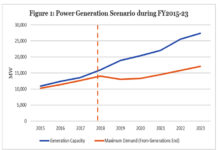Originally posted in The Business Standard on 06 April 2022

Cash prices for key crude oil grades produced in the Middle East, Europe and the United States have slumped in recent weeks from record premiums to futures benchmarks, as refiners balk at higher operating costs and major economies get set to release a flood of oil from strategic reserves.
Crude benchmarks traded in spot markets around the world are often predictive of the direction of global futures prices. Right now, declining premiums for grades from the Middle East, the North Sea and west Texas all suggest that the decision from big consumers to release crude reserves is having a dampening effect on prices, offsetting some of the anticipated loss of Russian exports.
In recent days, the premiums for Middle East benchmarks Dubai, Oman and Murban crude have fallen to a third of their early March peak. North Sea’s Brent and Forties are down 80% to 100% from when the United States banned Russian oil imports after the February 24 invasion of Ukraine. US grades like Mars sour are weakening as the US reserve releases more medium heavy sour crude into the market.

The International Energy Agency has warned that the world may lose 3 million barrels per day of Russian crude and oil products starting in April. Russia exports between 4 and 5 million bpd, making it the second-largest crude exporter behind Saudi Arabia.
To cover that loss, the United States announced its largest-ever release from the Strategic Petroleum Reserve (SPR) at 1 million bpd for six months from May, or about 180 million barrels, the third such release in six months. Other IEA members agreed on Friday to release oil following a March 1 release.

WEAK DEMAND FOR NORTH SEA, AFRICAN OIL
Since Russia’s invasion, which it terms a “special operation”, world futures markets became increasingly backwardated – where current prices trade at much higher levels than later-dated futures contracts, a sign of tight near-term supply.
But of late, buyers have balked at paying those record prices, instead drawing down inventories. That has led to an overhang in the West African oil markets, traders said.
“Refineries are cautious and shopping around to the last minute; SPR certainly makes the market a bit less strained over the next six months and, of course, there are worries of demand destruction,” a senior European trader said.
West African crude offers slipped again on Tuesday as Asian buyers had largely filled their requirements for the trading cycle and European buyers held off as supply overhangs lingered, traders said.

Supplies from top exporter Nigeria were piling up, with an overhang of April and May-loading crude reaching at least 40 cargoes, they said.
Oil for April loading from Africa’s No. 2 oil exporter Angola has yet to sell out along with at least 10 cargoes for May, the slowest sales in years, due to poor demand from top buyer China, traders said. China recently extended a lockdown in Shanghai due to coronavirus infections.

India has turned to cheap Russian Urals crude, reducing its demand for supplies from the Middle East and Africa, they said.
“It’s unclear if we are really facing tight supplies because Russian barrels are still flowing,” a Singapore-based trader said, adding that the United States may export more oil to Asia and Europe after the SPR release.

THE MEDIUM SOUR PICKLE
The US SPR release is expected to pump more medium sour crude into the market, weighing on spot Mars crude, traders said. Mars Sour is trading at a $3.05-per-barrel discount to US West Texas Intermediate (WTI) futures , from a $1.25-per-barrel premium hit in late February.
Rising freight costs, however, are making US exports less attractive, traders said.
Easing crude prices could encourage refiners to increase output to meet peak summer demand at a time when global diesel inventories are at their lowest levels in more than a decade.






